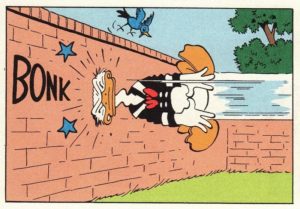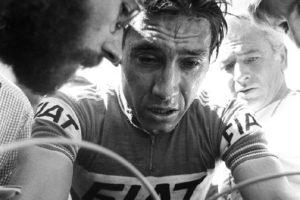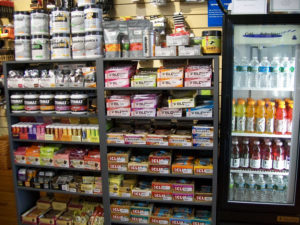Cycling nutrition : a basic guide. Advice for beginners.
There is a huge amount of great info on the interwebs about cycling nutrition. Actually the word huge does not even come close. Mind-boggling might be better. If you want to research the science or have a basic working idea then this page is not for you. I have just created this page to offer a quick one stop guide to what works that you can add to as you get more in tune with your own body and its reaction to your training.
Your goals and the duration of ride will play the largest part in defining your nutritional requirements when out on the bike. As a rule rides under an hour do not require taking fuel or even much water if you are not in warmer parts of the world. But eating something simple with slow burning carbohydrate (like oats) before your ride is a good idea.

Why fuel at all? On rides over an hour and gaining intensity correct fueling allows you to ride harder and longer. On longer rides your body can basically burn through its energy supplies and the result of this is not fun at all. This has lots of names but is commonly known as ‘Hitting the wall’ or ‘The bonk’. It comes on, sometimes quite quickly as leaden legs and a mental funk that makes you want to get of the bike and pretty much cry in someones arms. This is to be avoided as little sympathy is ever available and you will not be allowed to forget it. If you are reading this page you have probably experienced this in some form.

What type of fuel do I need? Your muscles (and the rest of you) require glucose to fuel them. This can be consumed during your ride in any way you like but the usual method is a sugary drink, energy bars/sweets or energy gels. Early tour de France riders set out on stages in the 1920s with pork chops in their handlebar bags and often called in to pubs on the route for a beer (this approach is not recommended currently).
Riding at a steady enjoyable pace for a few hours does not require mega amounts of expensive bars or gels but eating something during every hour (jelly sweets are good) and also having something that contains sugar in your drink bottle is a good idea (watered down fruit juice is good). Once your exercise starts to get a bit more pacy / competitive you need to pay more attention to your intake.
Amount of fuel needed when working hard for extended periods? The figure which seems to be standard is approx. 1 gram of carbohydrate per kilo of body weight per hour for intense work. So 70g per hour of carbs for a 70kg person.
General consensus is that mixing types of fuel is the best option. So rather than just using energy gels, energy drinks or just eating bars, its best to use all three.

Hydration and electrolytes? As a rule its not easy to over drink on a ride but under drinking can cause serious issues in performance. Little on often is a good rule. Pro cyclist get through 2 bottles an hour. 1 bottle of water and another of electrolyte/energy mix. Electrolytes are in basic terms a supplement to replace the salts lost through sweating (most energy drink mixes contain them).
After the ride? Training recovery nutrition has as much if not more information online than in ride fueling! Best advice if you want to keep it simple is to have a balanced meal as soon as possible. Failing that , a protein bar to tide you over until you can get a proper meal is a good idea.(by proper/balanced meal I mean fruits and vegetables with some source of protein)
Training plan for consecutive days? If you are planning on riding a lot (like every day because its awesome) or are going on a cycling holiday, then it becomes more important to get your pre/during/post-ride nutrition strategy right. On a simple level you should eat well before, during and after your rides whilst taking on enough water.
Cycling for weight loss? Cycling is the best from of weight loss. This is the topic for a whole article but best advice is add miles not reduce in ride calories. Fuel right on the bike and go further and faster and you will lose weight. Over restrict calories and you will not perform / recover well and will not even feel like training.
Summary:
1 hour or under nothing needed unless its really hot in which case you will need water.
Longer more intense riding needs 1 gram of carbs per kilo of body weight per hour + regular water intake.
Vary your intake of food type and eat properly before and after the ride.
Cycling for weight loss requires more miles / intensity and a balanced diet , not inadequate fuelling during rides.



